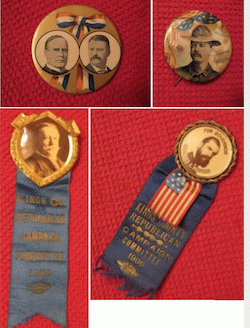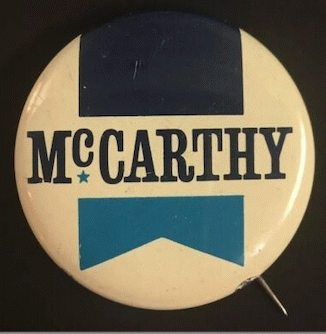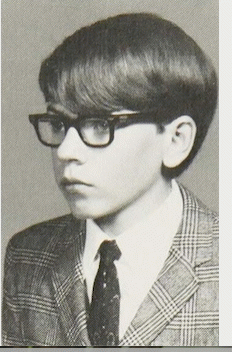Interview with Richard Hayes Phillips
My guest today is historian, election fraud investigator and author, Richard Hayes Phillips. Welcome back to OpEdNews, Richard.
Joan Brunwasser: I've enjoyed our first few installments this election season. I understand that you want to give us a bit of much needed historical perspective. That sounds good. But first: what makes you qualified to do that?
Richard Hayes Phillips: I am a retired history professor, a published historian, and a renowned election fraud investigator, and I have been involved with insurgent presidential campaigns since 1968.
JB: What an eclectic mix you are. In a previous interview, you talked about how you became an election fraud investigator. But, how did you get involved with politics in the first place?
RHP: I had always been interested in politics. One summer day when I was eight years old, during the Nixon-Kennedy campaign, I was talking politics with our elderly postmaster, who knew I collected stamps because I would always buy the new ones. He brought me a box of souvenirs from political campaigns in which he had been involved as a youth, and he gave me his duplicates -- McKinley, Roosevelt, Taft, Hughes. I was hooked. I still collect them now. But politics was nothing more than a hobby until --

McKinley Roosevelt Taft Hughes -- my own collection, among those given me by our postmaster
(Image by Richard Hayes Phillips collection) Details DMCA
I guess it all started when I was sixteen years old, and fifteen officers from four different police agencies raided our house and arrested me for my first ounce of marijuana. For a fifteen dollar bag, I was charged with two first degree felonies. There's nothing more effective than a marijuana bust to cause a child to start questioning the validity of our laws. I was radicalized overnight. I was now under constant surveillance. The only way I could fight back and get away with it was to join the campaign of Eugene McCarthy for President.

Campaign button for Gene McCarthy, I still have many of these from the campaign
(Image by Richard Hayes Phillips collection) Details DMCA
JB: Whoa. Let's not hurry on just yet. I'd like to know more about the whole pot bust. Where was this? What year? It must have been majorly traumatic for you. Did other kids in your school get arrested? Were you a local hero? Did you get jail time? Flesh this out for us, please.
RHP: It was in Schenectady, New York, in February 1968. It wasn't only me. They also arrested my sister and my very first girlfriend. We were the first ones arrested for marijuana in the county, and they wanted to make examples of us. It was all over the news, even fifty miles away. We were facing 8 to 20 years. If you look at my high school yearbook picture, taken during my junior year while I was up on drug charges, you can sense the fear I was feeling. Not one of my high school classmates piled on. But the so-called grownups did. They all said I had ruined my life and could never amount to anything. Our family lawyer wouldn't take the case, saying we belonged in jail. I was kicked out of English class and Chemistry class. I was kicked out of Boy Scouts when only two merit badges shy of becoming an Eagle Scout. I had nightmares about that for decades, and it still hurts today. All the neighbors came by, not to comfort the kids, but to console our parents about the shame and scandal we had brought upon the family. I was no hero. I thought I was a pariah. It damaged my self-esteem for nine years.
JB: Yikes! So, what happened?
After six months of police surveillance, to observe my political activities, to find out if I was still using drugs, and to find out if I liked boys, my sister and I were granted youthful offender status. We turned the tables on them by pleading not guilty. Now they had to make another deal if they didn't want the case to go to trial. Look at my high school yearbook picture. One or two mothers on the jury and I might not have been convicted. So, we got five years' probation. In this way, I learned about American justice. Whoever makes the better deal wins.
JB: Sadly accurate. Do you ever think about if things might have turned out differently if you were a person of color?
(Note: You can view every article as one long page if you sign up as an Advocate Member, or higher).






